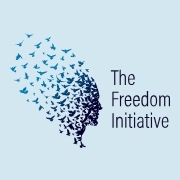FOR IMMEDIATE RELEASE:
Congress Urged to Block New Arms Sales to Saudi Arabia and the U.A.E.
Organizations call for U.S. to “downgrade” relationships with both monarchies
A coalition of organizations representing human rights, foreign policy, women’s rights, climate, and peace issues released a letter to Congress today urging senators and representatives to block all arms sales to Saudi Arabia and the United Arab Emirates (U.A.E.) and to fundamentally downgrade the U.S. relationship with both monarchies.
The organizations’ letter (link) to Congress opposes new Trump administration arms sales to both Saudi Arabia and the U.A.E., including a reported $478 million arms sale to Saudi Arabia’s monarchy, which would provide 7,500 precision-guided missiles to a government that has already bombed thousands of civilians in Yemen, often with U.S. weapons. A second announced $556 million arms sale will supply 4,569 MRAP vehicles to the U.A.E., a government that has also brought misery to both Yemen and Libya.
“The monarchies that rule Saudi Arabia and the United Arab Emirates are dangerous governments that pose a direct threat to regional stability and U.S. interests,” said Sunjeev Bery, Executive Director of Freedom Forward. “Through their devastating wars in Yemen and Libya, the Saudi and U.A.E. monarchies are driving a dramatic expansion of the Coronavirus pandemic in the Middle East and North Africa. It is time for the U.S. Congress to stop all arms sales to Saudi Arabia and the U.A.E. and downgrade the U.S. relationship with both governments.”
The letter highlights multiple reasons for downgrading the U.S. relationship with the Saudi and U.A.E. monarchies, including the following Saudi and U.A.E. policies and actions:
- Expanding the Coronavirus pandemic through devastating wars in Yemen and Libya.
- Support for terrorist networks, including U.A.E. transfer of U.S. weapons to Al Qaeda in the Arabian Peninsula.
- Jailing and killing human rights and democracy advocates.
- Interventions against democracy movements across the Middle East and North Africa.
- Violations of women’s rights and imprisonment of women’s rights activists.
- Driving the climate crisis through fossil fuel exports and obstruction of climate negotiations.
- The “Kafala” labor system, which can amount to modern-day slavery.
- Saudi and U.A.E. campaigns of global kidnapping, espionage, and murder.
“Now is the time for the United States to reassess its so-called strategic partnerships with misogynist and dictatorial states such as Saudi Arabia and the U.A.E., whose track records of violating human rights and international law speak for themselves,” said Salih Booker, President and CEO of the Center for International Policy. “Altering the U.S.’s relationships with these countries will require a reprioritization of interests and values that strengthen, rather than weaken, human security, including human rights and racial, political, environmental, economic and gender justice — both domestically and internationally. There should be no mistake, the present U.S. alliance with Saudi Arabia and the U.A.E. must come to an end.”
On Saudi and U.A.E. Devastation in Yemen:
“The U.S. needs to prioritize human rights in our foreign policy and must stop providing arms to authoritarian or repressive governments that systematically violate human rights,” said Yasmine Taeb, Senior Policy Counsel at Demand Progress. “The American people have been calling on the United States to end all support for the Saudi-UAE coalition’s disastrous war in Yemen that serves as the worst humanitarian crisis in the world.”
“The United Nations and human rights groups showed that Saudi Arabia committed war crimes by deliberately targeting civilians and civilian infrastructure in Yemen with U.S.-made weapons,” commented Paul Kawika Martin, Senior Director, Policy and Political Affairs for Peace Action. “More U.S. weapon sales will only cause more misery.”
“Yemeni-Americans across the U.S. have been calling on lawmakers to stop supporting the war in Yemen,” said Jehan Hakim, Chairperson of the Yemeni Alliance Committee. “The U.S. is simultaneously helping Saudi Arabia bomb Yemen while banning Yemenis from coming to the U.S. The U.S. must immediately cut off arms sales to the brutal Saudi kingdom and stop supporting the Saudi-led coalition. The people of Yemen have the sovereignty to handle their own affairs, without the interference of foreign intervention. Let’s let the people of Yemen deal with Yemen. The U.S. alliance with Saudi Arabia and the U.A.E must end once and for all.Yemen can not endure much more.”
“It is a moral abomination that the United States would continue to arm the Saudi regime while they are subjecting the Yemeni people to the worst humanitarian crisis on earth,” said Erik Sperling, Executive Director of Just Foreign Policy. “History will harshly judge those in both parties who have funneled weapons of war to a regime that is second to none in its horrific disregard for human life. The United States should not provide a single weapon more to the bloodthirsty Saudi despots.”
“Supporting war and helping kill innocent people is a disease. And you don’t cure this disease by continuing to sell weapons to the killer,” said Somia Elrowmeim, Chair of the Board of Action Corps.
On Saudi and U.A.E. Intervention in Bahrain:
“Congress should put an end to the sale of U.S. arms and weapons to human rights abusers,” said Husain Abdulla, Executive Director of Americans for Democracy & Human Rights in Bahrain (ADHRB). “Both Saudi Arabia and the U.A.E. spread armed conflicts in many parts of the world, including Yemen and Libya. In Bahrain, both Saudi Arabia and the United Arab Emirates played a major role in helping the Bahraini government crush the pro-democracy movement within its borders. Saudi Arabia and the U.A.E. have also enabled Bahrain’s government to engage in egregious human rights violations against Bahraini human rights defenders and members of the political opposition. The governments of both Saudi Arabia and the U.A.E. are responsible for the spread of a culture of impunity not only within their countries, but across the entire region of the Gulf Cooperative Council (GCC).”
On Saudi and U.A.E. Intervention in Libya:
“It’s time for Congress to stand decisively against continued U.S. arms sales to Saudi Arabia and the U.A.E.,” said Esam Omeish, President of the Libyan American Alliance. “The Saudi and U.A.E. governments have continued to support the reinstatement of dictatorship in Libya and elsewhere. This has led to the loss of thousands of lives, violated Libyans’ right to self-determination, and undermined U.S. foreign policy and U.S. interests. To continue enabling Saudi and U.A.E. violence through arms sales is an abdication of our values as Americans.”
On Saudi and U.A.E. Violations of Women’s Rights:
“There has never been as repressive an environment for women activists and civil society in Saudi Arabia as the one that exists now,” said Hala Al-Dosari, Saudi human rights activist, scholar, writer, and 2018 Recipient of Human Rights Watch’s Alison Des Forges Award for Extraordinary Activism. “Women activists have been a vital force in supporting the most vulnerable segments of Saudi Arabian society, offering deep insight into discriminatory laws and practices and mobilizing their society to take notice of the harmful impact of gender inequality. The budding group of women activists who managed to do all that, despite severe repression, are now imprisoned, exiled or silenced. During the persecution of these brave Saudi women activists, the U.S. administration has repeatedly acted as the bigger enabler of the Saudi leadership in its efforts to escape accountability and avoid changing course. It is time for the U.S. government to stop arming the Saudi monarchy.”
“The Saudi government continues to detain the very women human rights defenders that campaigned for the right to drive and the end to the male guardianship system,” said David Kode, Advocacy and Campaigns Cluster Lead for CIVICUS. “This points to the Saudi government’s own failure to uphold the civil and political rights of activists that have risked their lives for the progression of civic space in the country. Civic space in Saudi Arabia is rated closed on the CIVICUS Monitor and still continues to deteriorate further. In a context where the regime has been extensively white-washing its image, including hosting major sporting events and hosting the G20 Summit, the U.S. government must consider how its actions further contribute to the closure of civic space in the Gulf region.”
“Saudi Arabia upholds two systems of modern slavery, one for Saudi women and the other for foreigner residents,” said Bethany Alhaidari, Women’s Rights Advocate for Freedom Forward. “These systems dehumanize Saudi women and trap American women and children in Saudi borders, with the Saudi judiciary even revoking parental rights based on U.S. citizenship. Providing lethal weapons to such a state shows that the U.S. government does not prioritize the rights of women – even its own citizens – in foreign policy.”
“It’s mind boggling that the United States, which claims to promote human rights around the world, sells weapons to the Saudis and the U.A.E., countries that violate the basic rights of women and countries that use those weapons to kill innocent citizens in Yemen,” said Medea Benjamin, Codirector of CODEPINK. “Such blatant hypocrisy, designed only to benefit U.S. weapons companies, must end.”
On Saudi Arabia and the Climate Crisis:
“Saudi Arabia has the dubious distinction of being home to Saudi Aramco, the company that has been most responsible for cumulative greenhouse gas emissions over the 1965-2017 period,” said Basav Sen, Climate Policy Director for the Institute for Policy Studies. “Saudi Aramco is the worst in a set of 20 companies that are responsible for more than a third of cumulative global emissions between 1965 and 2017. Saudi Arabia has also played an obstructionist role in the UN Framework Convention on Climate Change (UNFCCC) process, along with the U.S., Russia, Australia, and Brazil. If the Saudi government suddenly claims to care about the environment, that’s just thinly disguised greenwashing.”
On Human Rights and U.S. Foreign Policy:
“U.S. weapons sales to Saudi Arabia and the U.A.E. have wrought dramatic devastation in Yemen and Libya,” said Megan Corrado, Vice President of Global Issues for the Clearinghouse on Women’s Issues. “The U.S., as an advocate for democracy and human rights around the world, should not be placing billions of dollars of weapons of war into the hands of oppressive regimes that govern with a complete disregard for the international human rights framework. The governments of Saudi Arabia and the U.A.E. have supported and enabled terrorist organizations and play a deleterious role in regional geopolitics, most often to the detriment of innocent women and children. The Clearinghouse on Women’s Issues and our colleagues strongly urge Congress to oppose all new arms sales to Saudi Arabia and the U.A.E. and to use all available tools in the diplomatic toolbox to persuade Saudi Arabia and the U.A.E. to protect fundamental human rights and start playing a more constructive role on the global stage.”






![]()


![]()
![]()
![]()
![]()
![]()
![]()
![]()
![]()
![]()

![]()




|
Saudi Arabia Executed a Prominent Journalist who Exposed Corruption. The World Should Act Before Other Dissidents are Next.